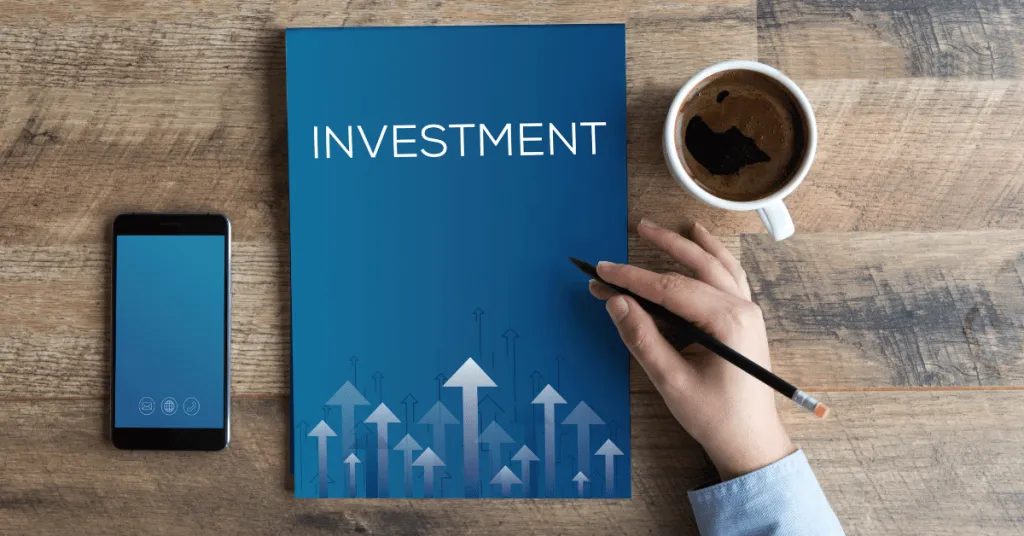The promise of new flavours beckons from Banawe.
How to Invest: A Guide for Those Who Don’t Want to Risk It All

I made my first investment at 18 — fresh out of college, working my second job, earning just a little above minimum wage, and without many financial responsibilities. Truth be told, I barely knew anything about investing back then. I only took the plunge out of fear: I knew my salary wouldn’t keep up with inflation if I left it sitting in a savings account, so I needed to place it somewhere with the potential for higher returns.
Of course, not everyone has the means to invest. But if you’re fortunate enough to have extra cash to spend on online shopping or other non-essentials, why not consider putting some of it into investments instead?
Also read: #TravelGoals? These Adulting Goals Might Be More Important
Why Filipinos don’t invest

According to the 2019 Financial Inclusion Survey (FIS) by Bangko Sentral ng Pilipinas (BSP), only 25% of Filipinos have investments. The 75% who don’t invest share various reasons why, but the majority points towards work instability (66%). Notably, 20% don’t invest because they are afraid of the high cost (20%); meanwhile, 15% are simply not aware of the benefits of investing.
Again, it’s true that the ability to invest is a privilege; but this doesn’t mean it should cost an arm and a leg. In fact, there now exist investments that allow Filipinos to start at ₱500. So if you have at least that much to spare, maybe it’s time for you to start investing.
How to start investing
1. Identify your financial goals
Ask yourself: Why do I want to invest? When will I need my investment money back?
As with many things in an adult’s life, goal-setting is ideally the first step to investing. Knowing your financial goals is important as it will encourage you to stick to your financial disciplines; at the same time, it will help you determine what kind of investment is best for you.
Some people invest because they want to start preparing for retirement. Others invest for the sake of having an emergency fund with a fair interest rate. Seasoned investors would likely invest for the potential to achieve the highest possible returns for their money.
All these financial goals have different timings. If you are investing at a young age, retirement is a long-term investment. On the other hand, emergency funds are typically short-term investments.
2. Know your risk appetite
 Image credit: ktasimarr via Canva Pro
Image credit: ktasimarr via Canva Pro
Ask yourself: How much am I willing to lose?
In line with your financial goals, your risk appetite will further determine how you should invest. The two go hand-in-hand: Long-term investments are usually safer for more volatile funds; short-term investments typically sit better as low-risk funds. While this isn’t always the case, this is a good rule of thumb you can remember when thinking about your money.
Other than the timing, your risk appetite also considers how much money you’re willing to lose. Unlike savings accounts, investment products aren’t insured by the Philippine Deposit Insurance Corporation (PDIC). Meaning, you can lose your money when worse comes to worst.
3. Set how much to invest
After identifying your financial goals and assessing your risk appetite, it’s time to decide how much to invest. Instead of coming up with a random amount, you can set a total amount of your desired investment, a deadline for when you’ll stop investing, and then work backwards to break down your overall financial goal into monthly goals.
For example, you’re currently 25 and want to retire by the age of 50. For your retirement fund, you want to have at least ₱1 million. Given the time and goal that you have, you’ll need to invest ₱40,000 yearly to achieve your desired investment. Monthly, that’ll be about ₱3,300.
You can use the same process for computing a short-term investment. If you want to build an emergency fund of ₱50,000 within a year, then set aside around ₱4,100 every payday.
If you think your monthly financial goals aren’t doable, remember that you can always adjust your overall goals. After all, this is your financial journey. You can either set a later deadline or minimise the desired cost.
4. Know your options
 Image credit: RonFullHD via Canva Pro
Image credit: RonFullHD via Canva Pro
Finally, it’s time to decide on what investment product to choose. Nowadays, there are several investment options to choose from. If you’re just starting to learn , here are some products you must know about:
Money market
The money market is a low-risk investment product with higher returns than a savings account. Some companies allow investors to open an account with as little as ₱500. With a minimal holding period, the money market is perfect for conservative and short-term investors.
Time deposit
Providing a conservative way to grow your money, a time deposit is a bank account that provides a fixed interest rate typically higher than a regular savings account. However, time deposits have a lock-in period — most start at 30 days. Initial deposits vary per company, but there are those that accept as low as ₱1,000.
Bonds
Want to level up your investments? Bonds are great for the moderate investor. Basically, this product lends your money to a private company or a government entity. With this, you can potentially gain interest through time.
Mutual funds
If you’re ready for a more advanced investment product, try mutual funds. Typically run by a fund manager, this product invests your money in different assets. Mutual funds are great for beginner investors who want more diversity in their portfolio, as it entails someone who can manage their investments on their behalf.
Stocks
One of the most aggressive investment products, stocks basically provide you with a fraction of ownership of wherever you invest in. This said, if a company grows in assets, then you gain returns. But if a company loses profit, your portfolio will also decline. Investing in stocks requires more effort and knowledge, so make sure to do your research before dipping your toes into the water.
Also read: 7 Life Investments You Should Secure Before Travelling the World
Interested to start investing? Consult someone you trust, do your research, and maybe even reach out to a financial advisor. Ultimately, remember that learning is a process — so don’t be afraid to try!
Featured image credit: relif via Canva Pro
Published at
About Author
Danielle Uy
Subscribe our Newsletter
Get our weekly tips and travel news!
Recommended Articles
10 Best Banawe Restaurants for a Mouthwatering Food Trip in QC 14 Best Credit Cards for Travel in the Philippines The only plastic we need for travel.
10 Commandments for Responsible Travel Flexing Spread the good word!
10 Tips for Planning Out-of-Town Trips During Typhoon Season Stay safe and travel well during the rainy season.
12 Most Colourful Natural Attractions Around The World! It’s time to cross over the rainbow!
Latest Articles
LRT 2 and MRT 3 Offer Free Rides for Philippine Women’s Open Participants Free train rides available
Japan Sakura Trip on a Budget: Where to Spend, Where to Save (Without Sacrificing Comfort) Here's how to score a discounted spacious apartment for your Japan trip!
BGC Master Plan Refresh: What Filipino Travellers Can Expect City upgrade insights
Here Is Where To Buy Viral Dubai Chewy Cookies In Manila The Dubai chocolate trend isn't dying... it's evolving!
Quezon City to Caloocan in Minutes: MRT-7 Sets 2027 Opening Date for 12 Stations No more 2-hour traffic?

